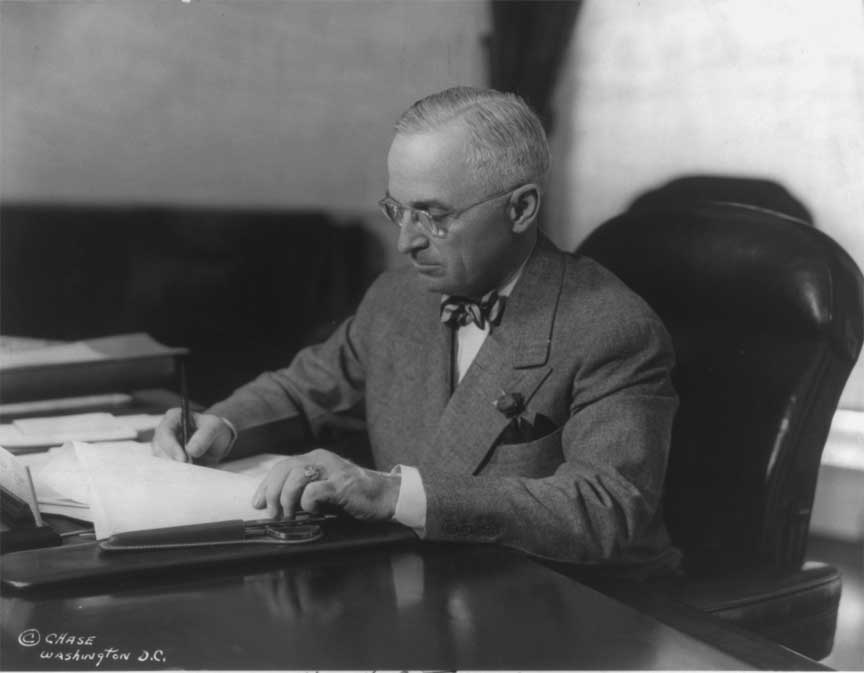1947 Truman Announces Truman Plan

President Truman
In 1946, communist guerillas began a civil war against the government of Greece. The communist government of Yugoslavia gave substantial support to the guerillas, while the British provided the Greek regime with substantial support. The British, beset with financial difficulties, informed the United States that Britain could no longer help support the regime in Greece.
The Greeks officially requested American aid, and at 1:00 pm, March 12th, Truman went before Congress and requested support for Greece as well as Turkey. The president asked for a total of $400 million for both Greece and Turkey. The Senate approved his request, 67 to 23 and the House approved it 287 to 107.
The cooperation that existed between the Soviets and the US and Great Britain throughout the war broke down soon after victory. Freedom in Eastern Europe quickly became an issue as did disagreements over Germany. The Soviets also supported communist parties in Western Europe, and with Europe struggling to recover after the war, there was fear that the Soviets would exploit the situation. In February 1946 George Kennan serving at the US Embassy at in Moscow sent what became known as the Long Telegram in which he warned about Soviet expansionist plans and outlined a plan of long-term containment of Soviet activities. The telegram was to provide a roadmap for American policy going forward.
Against this backdrop, a civil war had developed in Greece. The Greek government had been installed with the help of the British who briefly occupied the island. The communist opposition boycotted election that took place. After the election, the communist supported a civil war. While this was taking place the Soviets were putting pressure on the Turks to guarantee them control of the Bosphorus straits; the Turks pushed back. Both the Turks and the Greeks were receiving support from Great Britain, but Great Britain was struggling economically and informed the US government to that they would no longer be in a position to support either the Turkey or Greece.
American policymakers realized there was no choice but for the United States to step in. On March 12, 1947, President Truman addressed a joint session of Congress. In his speech, he stated: “I believe it must be the policy of the United States to support free peoples who are resisting attempted subjugation by armed minorities or by outside pressures.
I believe that we must assist free peoples to work out their own destinies in their own way.”
Republican Senator Arthur Vandenburg became an important supporter of Truman’s request for funds to aid the Greeks and Turks and was able to overcome traditional Republican isolationist tendencies. The Congress allocated $400 million for the two countries, aid that was effective in turning back the Communist threat at the time.
 >
>